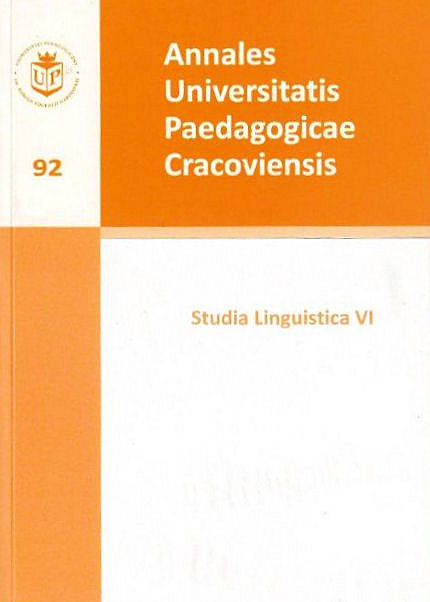Językowo-kulturowo-symboliczna zaduma nad północnokresowym kultem zmarłych utrwalonym w badaniach polskich uczonych różnych pokoleń
Main Article Content
Abstract
The paper contains philological reflections on the cult of the dead in northeastern Borderlands. The cult has been a source of inspiration for interdisciplinary studies of many Polish scholars - the popularizers of Polish culture, tradition and folklore. The analysis of the excerpts of the works of Oskar Kolberg, Aleksander Brückner, Aleksander Lubicz, Zenon Sobierajski, Czesław Pietkiewicz, Barbara Ogrodowska, Hanna Żyburtowicz and Teresa Kokocińska, the authors of Encyklopedia Kresów, as well as of Piotr Grochowski, allows the author to emphasize the uniqueness of: a) Radunica (celebrated in the time of Easter and Whitsunday) and b) Dziady (celebrated at end of October or at the beginning of November at the time of Christmas and Shrovetide). Językowo-kulturowo-symboliczna zaduma nad północnokresowym kultem... [207] The early Slavic pagan elements of these holidays are still present in Easter and Christmas customs. The names of the objects used in rites in northeastern cemeteries, churches and houses have been interpreted in terms of language forms and symbolism. Amongst the objects, most significant are: egg, knish (a baked or fried dumpling made of flaky dough with filling), kutia (a sweet dish usually made of wheat grain, poppy seeds and honey), kisiel owsiany (oat gelatin dessert), fish, groats, pea, broad been, bread, cheese, salt, honey, poppy seeds, dried mushrooms, white tablecloth, fire, open window and door, spoon and figures of forefathers-beggars. A comprehensive analysis of the names allows the author to interpret the cult as a form of peculiar dialogue between sacrum and profanum, paganism and Christianity, the past and the present.
Downloads
Article Details
Author, submitting a text to the editorial board of the journal “Annales Universitatis Paedagogicae Cracoviensis. Studia Linguistica", certifies that the content of the article has not been published so far and that the work does not violate in any way the copyright or related rights of other person, as well as other rights of third parties, and that no one's rights to the work (or any part thereof) have been missed. After signing the contract, the property rights to the published materials are transferred to the Scientific Publisher of the University of the National Education Commission, Krakow.
“Annales Universitatis Paedagogicae Cracoviensis. Studia Linguistica” is an open access journal, and all its content is made available free of charge to users and institutions under the Creative Commons CC-BY-NC-ND 4.0 license (attribution, non-commercial use, no derivative works). Under this license, the authors agree that their work may be lawfully reused for any purpose, except for commercial purposes, without the prior consent of the author or publisher. Everyone can read, download, copy, print, distribute and process these works, provided that the author's marking and the original publication place are correct. Published texts may not be used to create derivative works (e.g. to translate and publish in another language without the consent of the publisher). This is in line with the BOAI (Budapest Open Access Initiative) definition. "Studia Linguistica" does not charge for submitting or processing articles.
